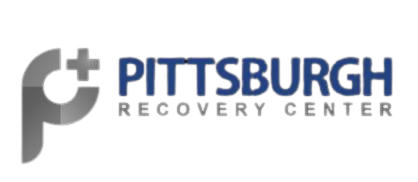Identifying substance abuse in a loved one can be one of the most strenuous and emotionally taxing experiences for any parent. Substance abuse continues to cast a long shadow over society, affecting not only the individuals directly involved but also their families and communities. As a parent, equipping yourself with knowledge on this sensitive matter is absolutely crucial. Recognizing drug paraphernalia — the tools and equipment associated with drug use — can be a key step in identifying substance abuse in your child. This guide aims to familiarize you with the various types of drug paraphernalia and the substances typically associated with each item. By understanding what to look for, you will be better positioned to take the appropriate actions to help your child.
Common Drug Paraphernalia and Associated Substances
1. Pipes
- Substances: Marijuana, Crack Cocaine, Crystal Meth
- Description: Pipes can be made from several materials, including glass, metal, and wood. They come in various shapes and sizes, but they generally have a bowl where the substance is placed and a stem from which the user can inhale the smoke.
2. Bongs
- Substances: Marijuana, Hashish
- Description: Bongs are water pipes that filter and cool the smoke before it is inhaled. They consist of a water chamber, a bowl, and a stem. The chamber is often filled with water, which bubbles as the user inhales.
3. Syringes and Needles
- Substances: Heroin, Methamphetamine
- Description: Syringes and needles are commonly associated with injecting drugs directly into the bloodstream. Look for used or new syringes, needles, and tourniquets.
4. Rolling Papers and Blunts
- Substances: Marijuana, Hashish, Tobacco
- Description: Rolling papers are thin sheets used to hand-roll cigarettes, often for marijuana use. Blunts are created by hollowing out cigars and filling them with marijuana.
5. Foil and Spoons
- Substances: Heroin, Methamphetamine
- Description: Aluminum foil can be used to smoke drugs by placing the substance on the foil and heating it underneath. Spoons are typically used to mix and heat the substance before injection.
6. Straws and Hollowed Pens
- Substances: Cocaine, Heroin
- Description: Straws and hollowed-out pens are often used for snorting powdered drugs like cocaine. These items may have powder residue, burn marks, or even blood on them.
7. Grinders
- Substances: Marijuana, Hashish
- Description: Grinders are small devices used to grind marijuana or other substances into smaller, more manageable pieces. They usually have sharp teeth and can be made from a variety of materials like metal or plastic.
8. Electronic Vaporizers and Vape Pens
- Substances: THC Oil, Nicotine, CBD Oil
- Description: Vaporizers and vape pens are electronic devices used to inhale substances in vapor form. These devices often leave very little odor, which makes them favored among users looking to be discreet.
9. Lighters and Butane Torches
- Substances: Various
- Description: While lighters can be used for smoking tobacco, they are also a common tool for smoking other illicit substances. Butane torches may be used for more intense heat application, required for substances like methamphetamine or crack cocaine.
10. Plastic Bags and Tinfoil Wrappers
- Substances: Various
- Description: Small plastic baggies and tinfoil wrappers can be used to store various types of drugs. Drugs often leave residue, so these items may contain traces of the substance or have a distinct smell.
Recognizing the Signs and Taking Action
Recognizing drug paraphernalia is a significant step toward addressing substance abuse, but it’s equally essential to observe changes in behavior, appearance, and social circles. If you notice any of these warning signs, it may be time to have an open yet non-judgmental conversation with your loved one. Approach the situation from a place of concern and support rather than anger and suspicion.
Get Your Loved One the Help They Deserve Today with Pittsburgh Recovery Center
Spotting drug paraphernalia in your home can be alarming and disheartening, but it is crucial to act swiftly and wisely. If you suspect or confirm substance abuse, it is vital to seek professional help. Pittsburgh Recovery Center offers comprehensive treatment options tailored to meet the individual needs of each person, including intervention services. Our team of experienced professionals can guide you through the process of selecting the best treatment plan, ensuring your loved one receives the necessary support. Don’t wait until it’s too late; contact Pittsburgh Recovery Center today to start the journey toward recovery and reclaiming a brighter future. Visit our admissions page or call our 24/7 hotline today at 866-781-1590.
By identifying and understanding drug paraphernalia, you can take the first steps in addressing and combating substance abuse within your household. Early intervention can make a significant difference in the recovery process, turning a potentially dire situation into an opportunity for positive change and renewed hope.
